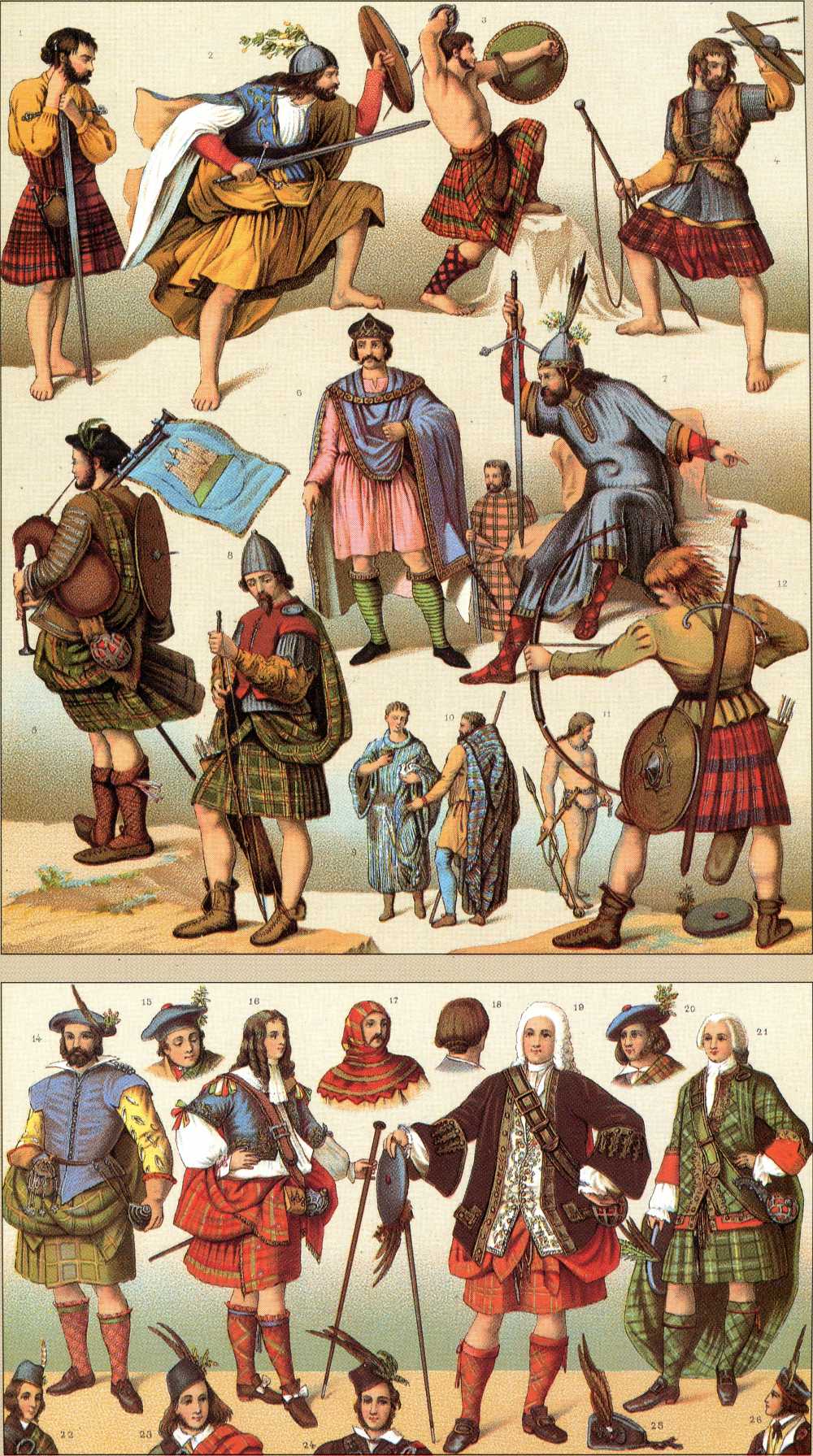
Shop Amazon - Create an Amazon Baby Registry
THE HISTORICAL ENCYCLOPEDIA OF COSTUME
ALBERT RACINET
THE CLASSIC WORK OF THE 19TH CENTURYp252-253

THE MOST DISTINCTIVE ELEMENT of traditional Scottish costume is the material from which it is made: tartan. This may have originated as a type of camouflage for use when hunting; certainly it blends in well with the colours of the heather-clad landscape in which the Highlanders live. The tartan pattern is referred to as a breacen - possibly a suggestion of the way in which tartan deceives the eye, breaking up visual impressions to enable a huntsman or warrior to escape detection.
The colours used in tartans are not arbitrary, but have been determined by a tradition that allocates different patterns to different clans - originally so that they could be identified in battle. Also by tradition, the various ranks of society are allowed to wear different numbers of colours: one for ordinary clansmen; three for chieftains; and seven for the royal family.
1.1 A warrior from the clan of MacDougal of Lorne, wearing the traditional kilt and sporran.
1.2 A Ferguson clansman, the leafy twig on his helmet being the clan emblem. He is wearing a saffron-coloured shirt - this colour is popular in Scotland, especially among gentleman.
1.3 A warrior from the Macmillan clan, wearing a kilt and brandishing a small claymore with a basket-guard.
1.4 A MacInnes clansman, armed with an aseth - a spear that was thrown at the enemy, then retrieved by means of the strap to which it is attached. He is wearing a fur jacket and a mail coat that covers his flannel coat.
1.5 A piper from the clan Mac Cruimin, wearing the traditional bonnet that carries the clan's symbol. The piper was an important figure in the royal household. He is dressed accordingly, in a fur baldric and laced buckskin boots, and is carrying a small claymore.
1.6 The laird of MacDonald of the Isles and one of his barons, holding audience on the torn moid, or "mount of law". His helmet is decorated with a circle of precious stones and surmounted by an eagle's wing, the chieftain's insignia. His mail coat goes almost down to his knees over a leather doublet and his arms and legs carry the MacDonald clan colours.
1.8 An archer from the Maclaurin clan, wearing a conical helmet and a silk doublet underneath a coat of chain mail.
1.12 An archer of the MacQuaaries clan, wearing a doublet that has been slashed at the shoulders.

2.14 A laird of the Skenes clan, dressed in the style of the time of James VI of Scotland (later James I of England). His doublet is decorated with braid in the Spanish manner - a fashion that persisted in the Highlands long after it had died out elsewhere.
2.16 A Scottish gentleman of the Robertson clan, who lived at the Court of Louis XV, managing to successfully blend French influences with Scottish plaid.
2.19 A gentleman of the Macintosh clan, dressed for the court in a lavishly embroidered velvet coat.